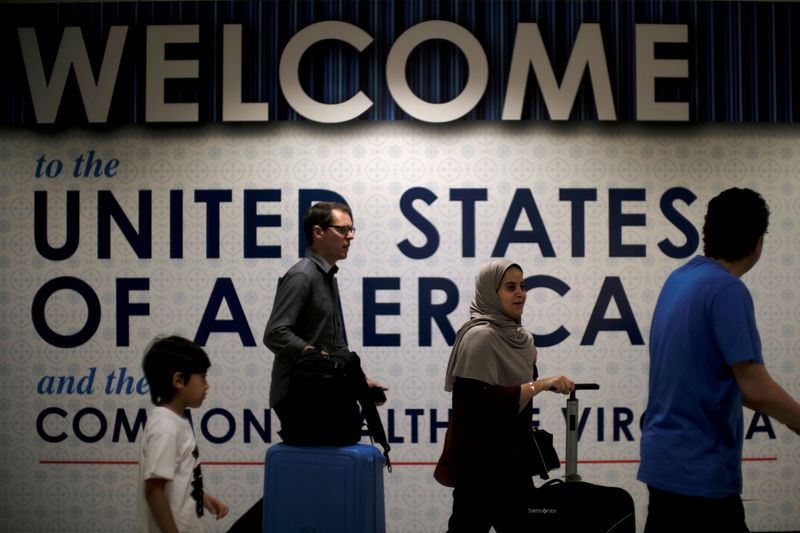By Lawrence Hurley and Andrew Chung
WASHINGTON (Reuters) - The American Civil Liberties Union on Friday launched the first legal challenge to President Donald Trump's new restrictions on people entering the United States from eight countries.
The civil rights group said in a statement that it will seek to amend an existing lawsuit in Maryland federal court that was filed against Trump's previous March 6 ban.
In a letter filed with U.S. District Court Judge Theodore Chuang, the ACLU said the new proposal announced on Sunday violates the U.S. Constitution as well as federal immigration law.
Trump's new ban places indefinite restrictions on travel to the United States for citizens from Iran, Libya, Syria, Yemen, Somalia, Chad and North Korea. Certain government officials from Venezuela will also be barred.
The ACLU will seek an injunction that would block visa and entry restrictions on those affected.
Challengers of Trump's immigration restrictions have said the bans are aimed at following through on a pledge he made on the campaign trail in 2016 to block Muslims from entering the country.
"President Trump's newest travel ban is still a Muslim ban at its core, and it certainly engages in discrimination based on national origin, which is unlawful," said the ACLU's executive director, Anthony Romero.
"We'll see President Trump in court - again," he added.
The new ban, Trump's third, could affect tens of thousands of potential immigrants and visitors. Trump has argued that the restrictions fulfill his campaign pledge to tighten immigration and security.
“The Department of Justice will continue to vigorously defend the president's inherent authority to keep this country safe,” said Justice Department spokesman Ian Prior.
The ACLU represents several nonprofit groups, including the International Refugee Assistance Project as well as individuals who say they would be affected by the ban, which goes into effect on Oct. 18.
Chuang was one of two district court judges who blocked Trump’s second travel ban, saying "it is likely that its primary purpose remains the effectuation of the proposed Muslim ban."
Legal experts say the new ban is likely on more solid footing than the previous bans, in part because it was implemented following a detailed review by federal agencies.
Trump's first travel ban aimed at seven Muslim-majority countries, issued soon after he took office in January, was blocked by courts following chaotic scenes at airports.

The second ban, targeting six countries, was blocked by lower courts and partially revived by the Supreme Court in June.